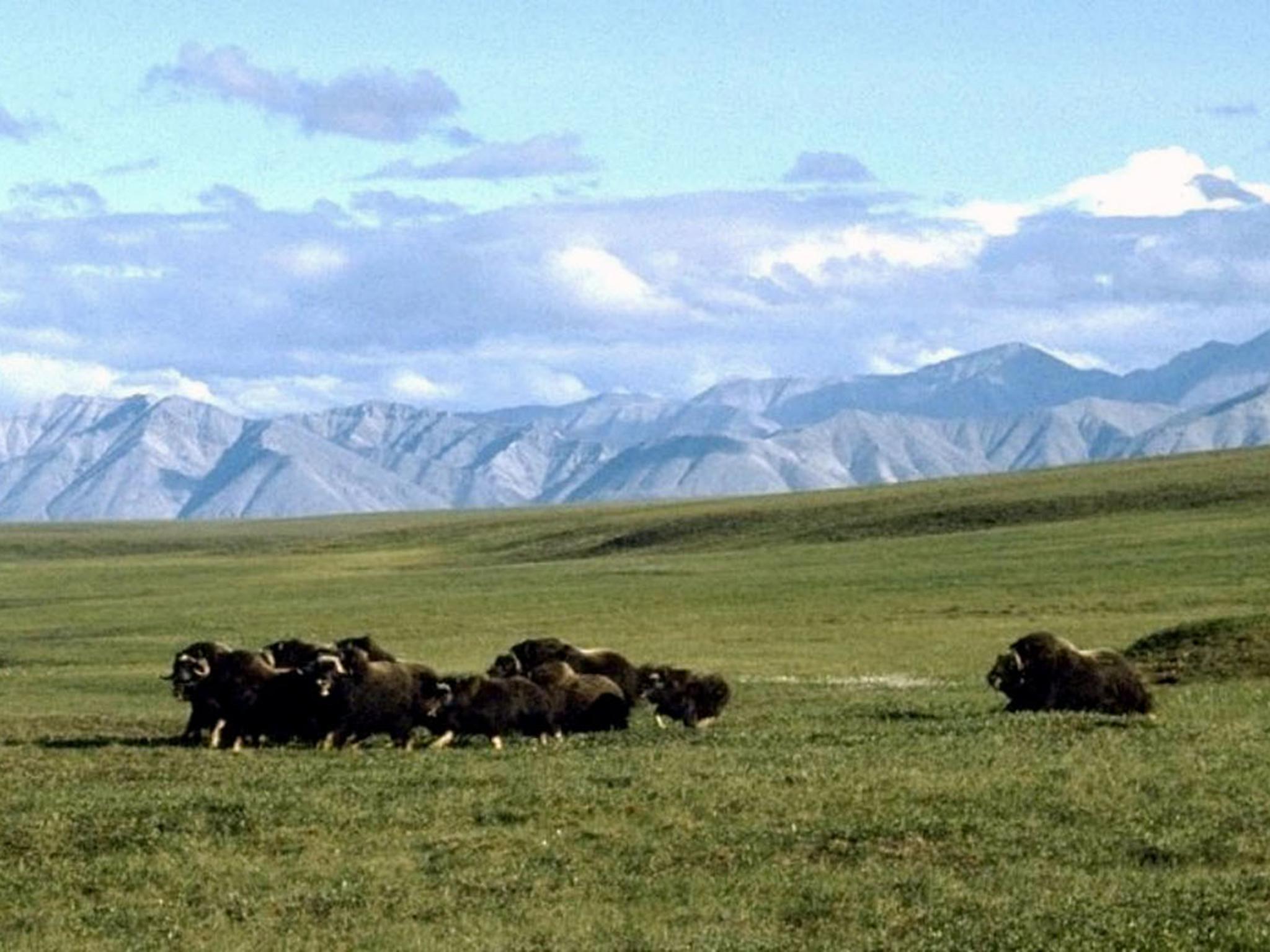Trump takes first step in aggressive effort to drill for oil in Arctic National Wildlife Refuge
'This scoping process begins the first step in developing a responsible path forward. I look forward to personally visiting the communities most affected by this process and hearing their concerns'

The Trump administration has taken the first step towards an aggressive effort to drill for oil in the Arctic National Wildlife Refuge - one of the country’s most pristine and environmentally sensitive areas.
The Bureau of Land Management (BLM), a division of the Department of Interior, issued a notice of intent to begin an environmental impact analysis of how oil exploration and the heavy infrastructure required to support it would alter a landscape where plants and animals thrive.
The BLM said an official notice of the analysis, known as scoping, will be published in the Federal Register on Friday, kicking off a 60-day comment period set to end in mid-June. In addition to allowing comments to be submitted online, five locations have been selected to engage Alaskans directly in Anchorage, Arctic Village, Fairbanks, Kaktovik and Utqiagvik. The administration wants to issue leases to the oil and gas industry as soon as next year.
It is the first time an administration has initiated an oil and gas leasing programme in the refuge since 1980, when Congress identified the region’s Coastal Plain section as an important area for energy resources.
The notice came just before the eighth anniversary of the Deepwater Horizon explosion that killed 11 people and spilled nearly five million barrels of oil into the Gulf of Mexico, leading to the deaths of an untold number of marine animals and birds.
“Developing our resources on the Coastal Plain is an important facet for meeting our nation’s energy demands and achieving energy dominance,” said Joe Balash, assistant secretary for Land and Minerals Management at the Department of Interior, echoing part of president Donald Trump’s campaign message. “This scoping process begins the first step in developing a responsible path forward. I look forward to personally visiting the communities most affected by this process and hearing their concerns.”
Alaska has pushed for oil and gas development in the region for decades, even as conservation groups have fiercely fought against it. Several Republican politicians in Alaska’s congressional delegation issued a statement in favour of the administration’s action.
“We appreciate the department following the law, planning multiple public meetings with Alaskans, and moving forward on this important programme to help ensure the energy and economic security of our nation,” said the statement from senator Lisa Murkowski, who chairs the Energy and Natural Resources Committee, senator Dan Sullivan and Republican Don Young.
The Gwich’in Nation of Alaskan Natives said in a statement that the Department of Interior was rushing to develop oil “at the expense of human rights” in an area they rely on for hunting and fishing. Porcupine caribou the Gwich’in have hunted for centuries use the plain to birth and nurse their young. Studies have shown that while much of the herd will graze near infrastructure, pregnant and nursing mothers shun it.
The Porcupine caribou migrate to the plain yearly for its nutritious grasses, trade winds that blow away bloodsucking insects and views that allow them to see approaching predators from afar.
“The administration has made my people a target,” said Bernadette Dementieff, executive director of the Gwich’in Steering Committee. “We will not stand down. We will fight to protect the porcupine caribou herd ... every step of the way.”
Conservation organisations denounced the proposal to drill and the fast pace of the environmental analysis that will pave the way.
“By pushing for a lease sale next year, the administration is admitting that they have no intention of seriously evaluating the negative impacts of oil development on wildlife and these wild lands, which science tells us are significant,” said Jamie Williams, president of the Wilderness Society.
Ms Williams said her organisation “remains opposed to opening the Arctic Refuge Coastal Plain to drilling.” She added, “Americans should be outraged at what is being done to the crown jewel of their National Wildlife Refuge System.”
The Washington Post
Join our commenting forum
Join thought-provoking conversations, follow other Independent readers and see their replies
Comments